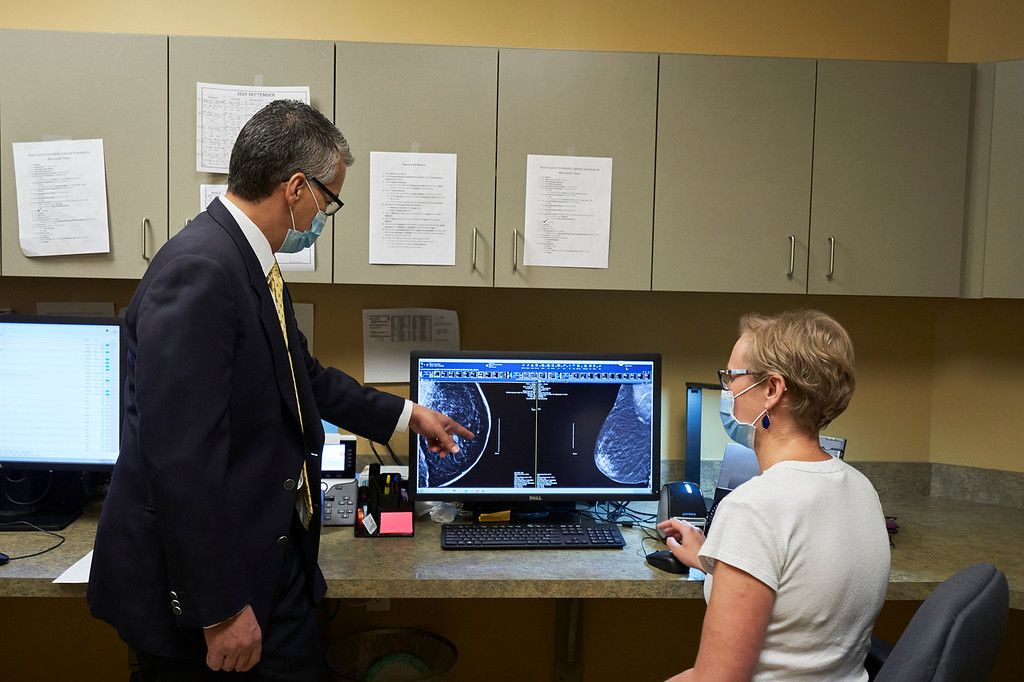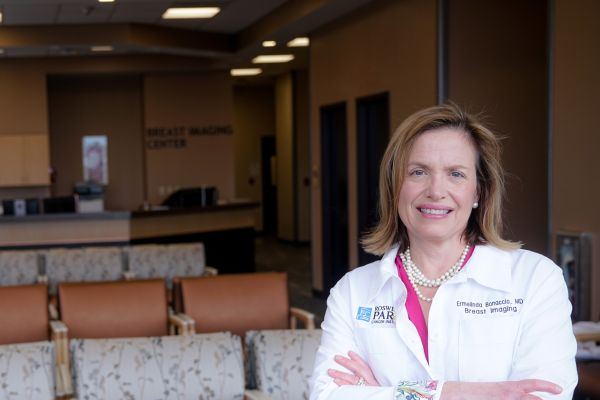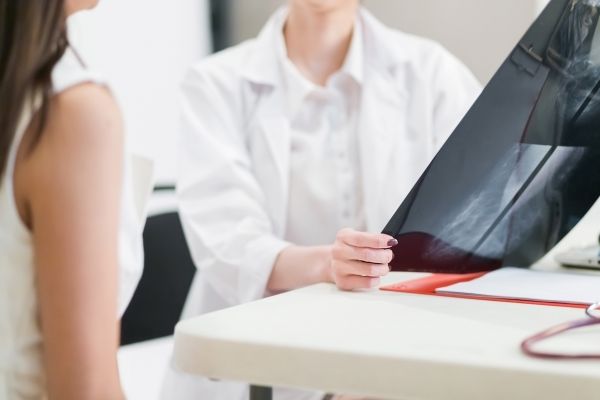There is confusion regarding baseline mammograms and what some women have been told by their primary care doctors. Some women are told they need a “baseline” mammogram at age 35 so that doctors have something to compare it to once they turn 40.
The National Comprehensive Cancer Network (NCCN), of which Roswell Park Comprehensive Cancer Center is a member, recommends that women of average risk of developing breast cancer begin mammograms at age 40 and to continue them annually from there. Unless a woman is deemed high risk for breast cancer, or is experiencing symptoms, there is no need for a mammogram before age 40. The first mammogram at age 40 then serves as the baseline.
Not sure if you are high risk? Take our breast cancer risk assessment.
Why do I need a mammogram at age 40?
The average American woman has a one in eight, or 13%, chance of getting breast cancer in her lifetime. Regular screening mammograms starting at age 40 are the best way to detect breast cancer early, increasing the chance of successfully fighting the cancer.
The goal of annual mammography screenings is to catch abnormalities before you think anything is wrong or abnormal, even before you find a lump.
The technology around breast imaging has become much better over time, offering improved views of the breast tissue. Studies have shown that 3D screenings catch more early-stage invasive breast cancers than 2D mammography alone — due to the ability to scroll through the layers of tissue on these 3D mammograms, to ensure there are no underlying masses. This has also reduced the number of call back appointments, where women need to come in for further imaging.
How do I get a mammogram?
In New York state, women over 40 do not need a prescription or a referral to have a mammogram. You can get a mammogram with the experts at Roswell Park at the main campus in downtown Buffalo and in Williamsville at Breast Care of WNY.
Women are encouraged to talk to their doctor about their family history, breast self-exams and lifestyle factors that affect the personal risk of breast cancer; such as maintaining a healthy weight and eating a healthy diet.


